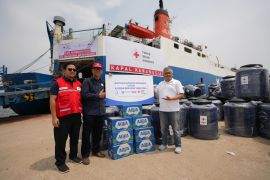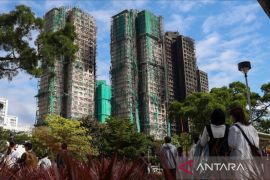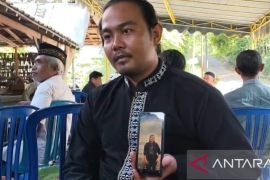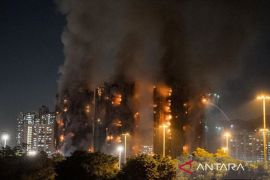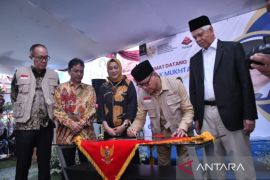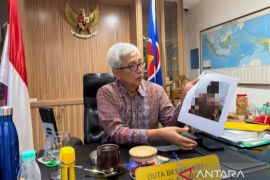Palu/Geneva (Antaranews Megapolitan) – Three months after an earthquake, tsunami and soil liquefaction devastated Central Sulawesi, Indonesia, the Red Cross is shifting its focus to helping affected families find safe and accessible accommodation.
Steve McAndrew, head of operations for the International Federation of Red Cross and Red Crescent Societies (IFRC) in Sulawesi and Lombok said with the emergency now over, we are turning our focus to finding families improved and safer shelter, in their original communities where possible.
Tented camp settings serve a vital purpose in the immediate aftermath of a disaster, but they are never meant to be long-term shelter solutions.
The focus on improved shelter is a step towards normality after the triple disaster killed more than 2,000 people and displaced thousands more, disrupting the lives and damaging the livelihoods of survivors.
The Indonesian Red Cross (PMI), with the support of IFRC and other Red Cross and Red Crescent partners, will soon begin a pilot project to provide safe, secure and accessible transitional shelters for 400 families in four affected locations, with a total goal of supporting 5,000 households, or 20,000 people.
Arifin Muhammad Hadi, head of disaster management at PMI, said these transitional shelters are not only safer than camps, they are also cleaner so people will have a better chance of remaining healthy.
And can't forget the positive impact it will have on survivors who are still hurting emotionally, to return to a place that feels more like home in the familiar surroundings of their own communities.
The project is part of a holistic recovery approach adopted by the Red Cross which includes health services, psychosocial support and water distribution and, going forward, livelihoods support.
The transitional shelters will be built in the four regencies of Donggala, Palu, Parigi Moutong and Sigi. Community members will also be trained on improved building techniques which will help strengthen resilience in the longer term.
With PMI’s extensive experience in cash transfers from previous disaster responses, other options being explored could include a possible combination of cash, vouchers, or the complete reconstruction of a survivor’s home, taking individual circumstances into account.
Mr Hadi added recently implemented a cash transfer voucher programme in North Lombok, where more than 2,000 families affected by the July and August earthquakes used vouchers to purchase rebuilding supplies that meet their individual needs.
Feedback from the communities is that they greatly appreciate the flexibility of such a programme and it’s something we are considering implementing in Sulawesi.
From the beginning, PMI has been at the forefront of both the Lombok and Sulawesi disaster responses, mobilizing more than 2,000 volunteers, including many who were directly affected by the disasters.
In November, IFRC revised its emergency appeal upwards to 38.5 million Swiss francs (38.5 million US dollars / 34 million euros) to support PMI in reaching 160,000 people affected by both disasters. The appeal, which will support activities through March 2020, is currently 49 per cent funded. (*/RLs/ANT-BPJ).
Three months after Indonesia disasters, Red Cross focuses on improved shelter for thousands of displaced families
Sabtu, 22 Desember 2018 1:53 WIB
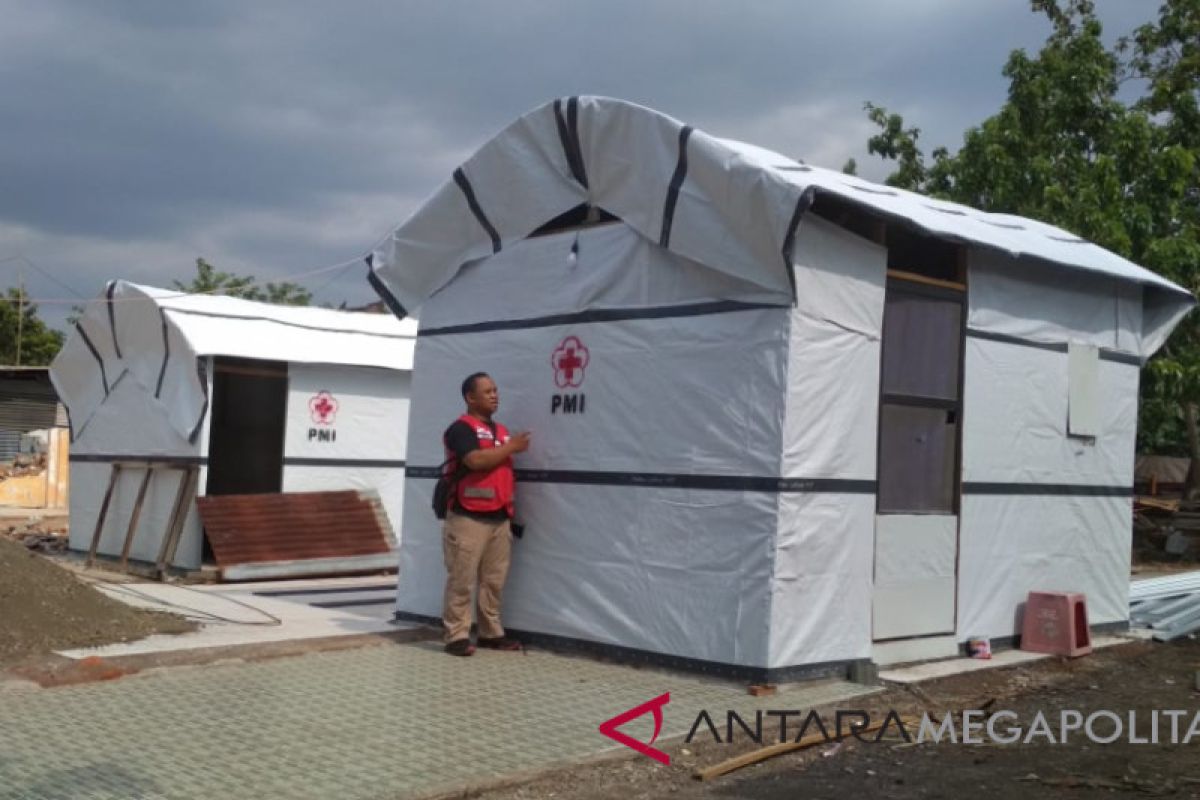
PMI's Shelter, Selat, Narmada, West Lombok, NTB. (Megapolitan.Antaranews.Com/Foto: Aditya AR/Doc).
PMI has been at the forefront of both the Lombok and Sulawesi disaster responses, mobilizing more than 2,000 volunteers, including many who were directly affected by the disasters.


